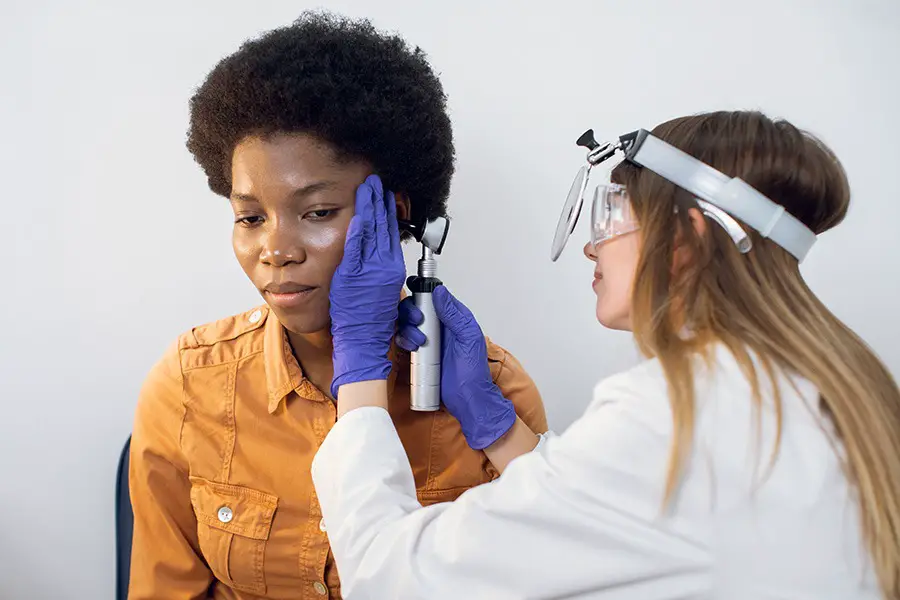Introduction
Meningitis and hearing loss can be a difficult and life-changing experience for both the affected individual and their loved ones. As a caring friend or family member, understanding the connection between meningitis and hearing loss, recognizing the signs, and being aware of available treatments and support systems are essential in helping your loved one cope with this situation. This comprehensive guide provides insights into various aspects of meningitis and hearing loss, along with practical advice on how to be a source of support for your loved one.
The Effect of Meningitis on Hearing
What You Need to Know Meningitis is an inflammation of the protective membranes surrounding the brain and spinal cord, often caused by bacterial, viral, or fungal infections. Hearing loss is a common complication of meningitis, with about 30% of survivors experiencing some degree of hearing impairment. Meningitis-induced hearing loss occurs when the infection damages the delicate structures within the inner ear, responsible for transmitting sound to the brain. It is important to recognize the signs of hearing loss after meningitis, such as difficulty hearing or understanding speech, tinnitus, or balance problems, to facilitate early intervention and minimize long-term consequences.
Interdisciplinary Collaboration in Meningitis and Hearing Loss
Research Collaboration among various healthcare professionals is vital for managing meningitis and hearing loss effectively. An interdisciplinary approach ensures that all aspects of the patient’s needs are addressed, including medical treatment, hearing rehabilitation, speech therapy, and psychological support. In addition, collaborative research efforts among scientists, audiologists, and physicians can lead to new discoveries in the understanding, prevention, and treatment of meningitis and hearing loss. As a caring friend or family member, it is important to stay informed about the latest research and advancements in the field.
The Potential of Gene Therapy for Addressing Meningitis-Induced Hearing Loss
Gene therapy is an emerging field with the potential to revolutionize the treatment of various diseases, including meningitis-induced hearing loss. This approach involves the delivery of genetic material into cells to correct or replace faulty genes, promoting the restoration of normal cellular function. In the context of hearing loss, gene therapy aims to protect or regenerate damaged auditory cells, thereby improving or restoring hearing ability. While still in the experimental stage, gene therapy holds promise for the future treatment of meningitis-related hearing loss and may become a viable option for those affected by this condition.
Professional Re-Chargeable Hearing Aid
Experience Exceptional Sound Quality with Vivtone RIC02, a professional RIC hearing aid featuring a receiver in the canal design. Enjoy superior sound fidelity, reduced distortion, and minimal feedback. With a remarkable 51dB peak sound gain, it surpasses many other devices, catering to a wide range of hearing loss levels.
State-of-the-Art Technology awaits you with Vivtone RIC02. Designed with US-made components from renowned brands like Intricon and Knowles, this advanced device offers exceptional quality at a fraction of the cost. The built-in 30mAh steel-sealed lithium polymer battery charges rapidly in just 1.5 hours and provides an impressive battery life of over 20 hours.
Reliability and Water Resistance come hand in hand with the Vivtone RIC02. Secure your device with the included lanyard and clip, preventing accidental loss. With an IP65 rating, these hearing aids are resistant to water, sweat, and raindrops, assuring longevity and durability. Give the perfect gift to your seniors and loved ones, as this device combines functionality with an appealing appearance and packaging.
Navigating the Emotional and Social Impact of Meningitis-Related Hearing Loss
Meningitis-related hearing loss can have a significant emotional and social impact on both the individual and their loved ones. Feelings of frustration, isolation, and depression are common as the person affected adjusts to their new reality. As a caring friend or family member, it is crucial to recognize these emotions and provide a safe space for your loved one to express their feelings. Encourage them to seek professional help if necessary, and consider joining a support group for individuals and families affected by meningitis and hearing loss. By fostering open communication and offering emotional support, you can help your loved one cope with the challenges of meningitis-related hearing loss and work towards a better quality of life.
The Role of Patient Advocacy in Shaping the Future of Meningitis and Hearing Loss Research
Patient advocacy plays a crucial role in raising awareness about meningitis and hearing loss influencing research priorities promoting better policies for affected individuals. As a caring friend or family member you can become an advocate for your loved one by staying informed about the latest research advancements participating in awareness campaigns sharing your experiences with others. Engaging in advocacy efforts can contribute to a better understanding of meningitis-related hearing loss ensuring that the needs of those affected are acknowledged addressed in future research healthcare policies.
QUIZ - TREATMENTS OF HEARING LOSS IN CHILDREN
The Role of Patient Advocacy in Shaping the Future of Meningitis and Hearing Loss Research
Patient advocacy plays a crucial role in raising awareness about meningitis and hearing loss influencing research priorities promoting better policies for affected individuals. As a caring friend or family member you can become an advocate for your loved one by staying informed about the latest research advancements participating in awareness campaigns sharing your experiences with others. Engaging in advocacy efforts can contribute to a better understanding of meningitis-related hearing loss ensuring that the needs of those affected are acknowledged addressed in future research healthcare policies.
Conclusion
Meningitis-related hearing loss can be a life-altering experience but with the right support knowledge resources individuals affected by these conditions can continue to lead fulfilling lives. As a caring friend or family member it is vital to understand the various aspects of meningitis-related hearing loss including early detection treatment options emotional social impact. By being informed offering practical emotional support you can help your loved one cope with the challenges of meningitis-related hearing loss work towards a better quality of life.

Decoding Silence: An Analytical View on the Advances in Conductive Hearing Loss Research and Treatment
This analytical article sheds light on conductive hearing loss, offering an in-depth exploration of its genetic factors, treatment advances, and promising experimental therapies.

Embracing the Melody of Life: Navigating the Journey with Conductive Hearing Loss
A blog post delving into the experiences and challenges of living with conductive hearing loss, discussing its impact on everyday life, social interactions, mental health, and the potential benefits of hearing aids and cochlear implants.





